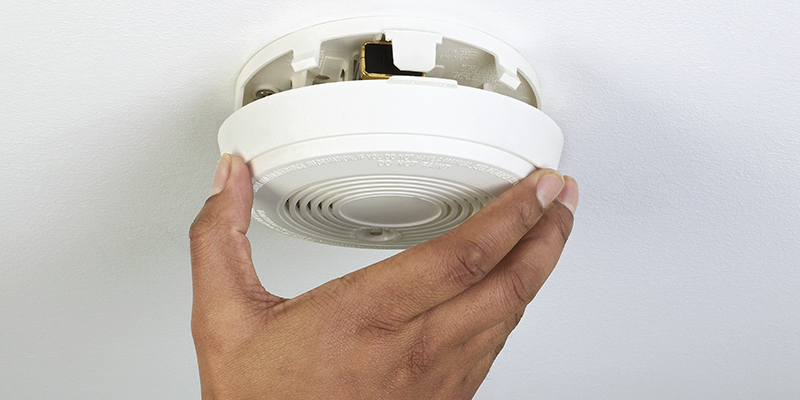
Form 16 Smoke Alarms: Ensuring Home Safety
In every home, safety is of paramount importance. One crucial aspect of home safety is having functional smoke alarms. Form 16 smoke alarms are a vital component of your home’s defense against fires, providing early warnings that can save lives and property. In this article, we’ll delve into the significance of form 16 smoke alarms, how they work, and why you should prioritize them in your home.
Understanding Form 16 Smoke Alarms
Form 16 smoke alarms are specialized devices designed to detect the presence of smoke in the air. They are named after the form in which they are typically provided for installation and maintenance records. These alarms use various technologies, including ionization and photoelectric sensors, to detect smoke particles in the air.
The Mechanics of Smoke Detection
Ionization vs. Photoelectric Smoke Alarms
Smoke alarms come in two primary types: ionization and photoelectric. Ionization smoke alarms are more responsive to fast-burning fires, while photoelectric alarms are better at detecting slow, smoldering fires. Combining both types in your home provides comprehensive coverage.
The Importance of Form 16 Smoke Alarms
Early Warning
One of the most critical functions of form 16 smoke alarms is providing early warning in case of a fire. These alarms can detect the presence of smoke even before flames become visible, giving you precious extra minutes to evacuate safely.
Property Protection
Apart from safeguarding lives, form 16 smoke alarms also protect your property. An early alert can help minimize fire damage, potentially saving you from costly repairs and loss.
Installation and Maintenance
Proper Placement
To maximize the effectiveness of your form 16 smoke alarms, they should be strategically placed throughout your home. Common locations include the kitchen, near bedrooms, and on every level of your house.
Regular Testing
Routine testing and maintenance are crucial. Test your smoke alarms monthly to ensure they are functioning correctly, and replace the batteries at least once a year.
The Legal Requirements
Building Codes and Regulations
In many regions, including Queensland, it is a legal requirement to have functioning smoke alarms installed in residential properties. These laws are in place to protect occupants and ensure their safety.
In conclusion, form 16 smoke alarms are essential for safeguarding your home and loved ones. They provide early warnings, protect your property, and are often required by law. Ensuring your smoke alarms are installed correctly, regularly tested, and well-maintained is a responsible step every homeowner should take.
Frequently Asked Questions
1. Do I need both ionization and photoelectric smoke alarms in my home?
It’s advisable to have both types for comprehensive fire detection coverage.
2. How often should I replace the batteries in my form 16 smoke alarms?
Replace the batteries at least once a year, even if they still seem to be working.
3. Are there any specific regulations regarding smoke alarms in rental properties?
Yes, landlords are typically required to install and maintain smoke alarms in rental units.
4. Can I install form 16 smoke alarms myself, or do I need professional help?
While you can install them yourself, it’s recommended to have a professional ensure they are correctly placed.
5. What should I do if my smoke alarm keeps beeping?
A beeping smoke alarm may indicate a low battery. Replace the battery immediately, and if the problem persists, consider seeking professional assistance.
6. What does conveyancing and smoke alarms have to do with each other?
Conveyancing and smoke alarms are linked in the context of property transactions. When a property is being sold or transferred (conveyed), it must adhere to safety regulations, including having functional smoke alarms. Compliance ensures that the property meets legal standards, safeguarding the well-being of its occupants.
7. Can I install my own alarms and say they are compliant?
While you can install smoke alarms yourself, it’s crucial to ensure they comply with local safety regulations. Installing your own alarms might lead to legal issues if they are later found to be non-compliant. To be safe, it’s recommended to hire a qualified professional. They can install alarms correctly, ensuring compliance and the safety of your property.
8. In QLD, what happens if I sell my house and the alarms are found to be non-compliant?
If you sell your house in Queensland and the smoke alarms are discovered to be non-compliant, it can result in legal consequences. Non-compliance can lead to fines and penalties, under the REIQ contract the buyer has the right to claim 0.15% as compensation off the purchase price. Additionally, it may cause delays or complications during the property sale process. To avoid such issues, it’s essential to comply with all smoke alarm regulations, ensuring they are installed correctly and are in good working condition before selling your property. Consulting with professionals or relevant authorities can provide accurate guidance to ensure a smooth and legal property sale process.
Incorporating form 16 smoke alarms into your home is a simple yet powerful step toward enhancing safety and peace of mind. So, don’t delay—ensure your home is equipped with these life-saving devices today.
This is general advice only, for specific legal advice speak with your legal representative.





